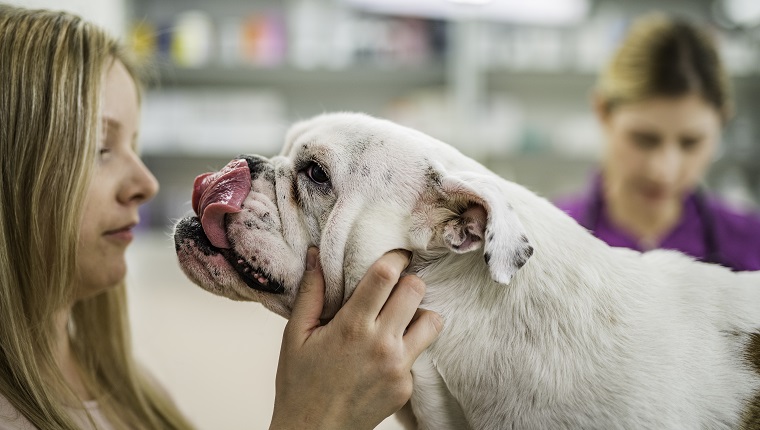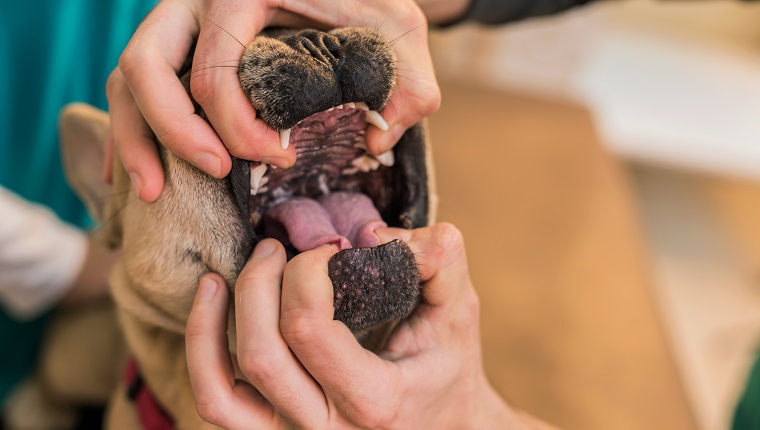A dentigerous cyst in dogs is a medical condition that happens when a cyst appears on a dog’s tooth. These cysts are often said to resemble blisters.
The condition develops in the tissue that surrounds an unerupted tooth — a tooth that has not yet properly emerged. When it comes to specific breeds, this condition seems to affect Bulldogs and Boxers the most.
If you see signs that your canine might be developing any issues with their teeth, gums, or mouth, then you must consult your veterinarian for a proper diagnosis and advice. Here’s what you should know about the symptoms, causes, and treatments of dentigerous cysts in dogs.
Symptoms Of Dentigerous Cyst In Dogs
Dentigerous cysts in dogs can produce a number of symptoms. Some of the most common symptoms include:
- The appearance of missing teeth
- Problems eating food
- Swelling and presence of fluid where a tooth should be
- Swelling of the mouth and face
Causes Of Dentigerous Cyst In Dogs

The cause of dentigerous cysts in dogs is generally said to be unerputed teeth. However, there are also certain breeds of dog that posses certain physical traits that make them more likely to develop this issue.
Some of the breeds most likely to experience the condition include:
Veterinary Treatments
If you suspect that your dog might be suffering from a dentigerous cyst, your veterinarian will want to ask about their full medical history and pay attention to any breed-specific physical traits.
They’ll carry out a full examination of the mouth and teeth, with the intention to see if there is an oral mass that has set in at the root of any of the teeth. Radiographic imaging techniques can help to confirm a diagnosis.
When it comes to treatment, surgically extracting the problematic cyst is often the main course of action. Additionally, if a dog’s jaw has been damaged, a vet may recommend replacing parts of the jaw bone with synthetic material.
While your dog recovers, your vet might suggest that you switch their diet to include more soft foods. In cases where an infection has also set in, vets will also likely prescribe a course of antibiotic medicine.
As ever, if your vet prescribes your canine any medicine, it is vital that you stick to the precise frequency and dosage instructions and complete the full course of medication.
Has your dog developed a dentigerous cyst? Did your vet take steps to remove the cyst? Tell us all about it in the comments below.









